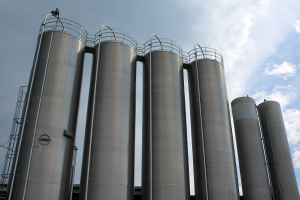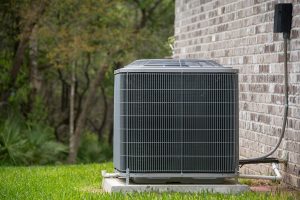Does Home Heating Oil Evaporate and Other Questions
Are you considering trying heating oil for your home? Or perhaps you’ve moved into a home that has an oil furnace. Either way, you may have some questions about heating oil if you’ve never used it before. Consider the following common questions home heating oil suppliers are used to being asked in order to help you gain a better understanding of this fuel and its benefits.
Does Home Heating Oil Evaporate?
Heating oil reaches its vapor point at 140 degrees Fahrenheit. It won’t evaporate until it is heated to that point, whether inside or outside of the tank. Heating oil ignites at 160 degrees Fahrenheit, which means that in its liquid form it won’t light. You could drop a match into a cup of heating oil and it won’t ignite.
Does Heating Oil Smell?
Heating oil does have a smell. It is a diesel product, so it smells just like diesel fuel. However, you won’t typically smell the oil. If your tank was recently refilled or when you first turn your furnace on in the fall, you may smell oil for a short time. It will dissipate quickly. If the smell lingers, contact your home heating oil suppliers.
Can Heating Oil Freeze?
Heating oil has a freezing point that is below that of water. Heating oil won’t start to freeze until the temperature dips below 20 degrees Fahrenheit. It won’t necessarily become a problem unless it freezes enough to clog up your lines or filter. Installing the filter indoors can help prevent a freezing problem, as well as insulating the outdoor lines, but in this area of North Carolina it is not a problem at all.
Is Heating Oil Efficient?
Heating oil is very efficient. It burns hotter than natural gas, allowing it to create more heat for your home in a shorter amount of time with less fuel. A single gallon of heating oil creates 125,000 BTUs (British Thermal Units), which surpasses propane at 84,000 BTUs and natural gas at 20,000 BTUs. And on top of that, heating oil furnaces operate more efficiently than ever before.
How Does Heating Oil Compare in Price?
Pricing of heating fuels always varies due a number of factors from supply and demand to the weather conditions of the season. In general, heating oil usually costs more per unit than propane or natural gas, however, it goes further. Although you may pay more up front to refill your tank, that tank of oil will last a long time. And many home heating oil suppliers offer payment plans to make refills more affordable by spreading the cost out into monthly payments.
How Long Does an Oil Furnace Last?
Heating oil furnaces have the longest lifespan of home furnaces. You can expect to get 30 years or more out of your oil furnace, which is significantly longer than a propane or gas furnace is expected to last.
Need a Heating Oil Supplier? Berico is Reliable and Affordable
Berico has been supplying heating oil to Greensboro and the surrounding area for decades. Automatic refills and payment plans make it more affordable than ever to heat your home with oil. If you have additional questions, the experts at Berico would be glad to answer them and help you make the best decision for your home.
Call (336) 273-8663 today to inquire about heating oil delivery or schedule a delivery.


 The last thing you want to experience is a broken furnace on a cold winter day or night. Sometimes furnaces break down without warning, but in many cases there are signs that indicate your furnace may not be working properly.
The last thing you want to experience is a broken furnace on a cold winter day or night. Sometimes furnaces break down without warning, but in many cases there are signs that indicate your furnace may not be working properly. Heating oil may seem like an old fashioned option for home heat, as many older homes are equipped with oil furnaces and storage tanks. However, heating oil is still one of the most popular heating fuels for a variety of reasons. What are some of the benefits of heating oil?
Heating oil may seem like an old fashioned option for home heat, as many older homes are equipped with oil furnaces and storage tanks. However, heating oil is still one of the most popular heating fuels for a variety of reasons. What are some of the benefits of heating oil? When was the last time you had your furnace serviced? If it takes you a moment to remember, it has probably been too long. Your furnace, like any other working machine, needs occasional maintenance to operate properly and efficiently. There are many reasons why maintenance is important for your furnace in Greensboro.
When was the last time you had your furnace serviced? If it takes you a moment to remember, it has probably been too long. Your furnace, like any other working machine, needs occasional maintenance to operate properly and efficiently. There are many reasons why maintenance is important for your furnace in Greensboro. Is your air conditioner making more noise than usual? A recent model air conditioner that is working properly should operate relatively quietly. You might hear a slight vibration sound when it starts up as the outdoor unit begins to run, and then a soft air blowing sound from your vents. If you’re hearing more noise than that, your system may not be operating as it should.
Is your air conditioner making more noise than usual? A recent model air conditioner that is working properly should operate relatively quietly. You might hear a slight vibration sound when it starts up as the outdoor unit begins to run, and then a soft air blowing sound from your vents. If you’re hearing more noise than that, your system may not be operating as it should.